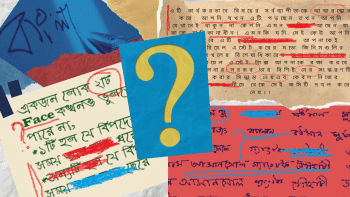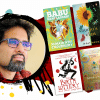Manufacturing praise

Sometime ago, a writer reached out to me with a request. His debut novel was being published later in the year and he was wondering if I would be open to reviewing it. I was aware of the book, having read it when it was still only a draft. The author was not someone I only knew, either, but a mentor who had supported my writing in many ways, even through monetary means. Refusing him, then, felt tantamount to betrayal. But I had to in the end, and though he understood, I still came out of the exchange feeling guilty of being unhelpful or, worse, ungrateful.
Much has been written about the machinations that go behind the scenes of book criticism. The Economist, of all places, last year mourned the death of the "hatchet-job" in a piece called "Critics are getting less cruel. Alas", saying that the book review reads often like "a smug inside job". Indeed, a cursory review of book criticism in newspapers in Bangladesh lays bare the fact that it is very much the case here as well. Book reviews written by a student or well-wisher of the author is unsurprisingly common. When an unfortunate staff-writer is assigned a book, they are often nudged into writing a glowing review or, if that is not possible, a tempered, "balanced" review. The latter is a phenomenon I had to personally deal with during my time working as a staff writer for literary supplements. Far from being "balanced", the term is used to refer to reviews where the meagre amount of positives of the book is amplified throughout the piece, after which the writer is free to add in a token few lines on what held the book back. I am of course to be blamed for this as well, as I too had "adjusted" a few times, caving into the pressures of producing a "balanced" review.
Mir Arif, a Bangladeshi writer based in the US, with whom I had the pleasure of working alongside as a staff-writer, says of his experience reviewing books in Bangladesh: "A major challenge was learning about the writers' backgrounds and their literary associations, which was somehow important in the existing review culture…In editorial meetings, the editors often discussed their views on the writer even before I read the book. As bad as it sounds, editors' views often influenced my reviews, sometimes even after I had submitted my drafts. On top of it, there was a general tendency to overpraise Bangladeshi literature…"
Bangladeshi writing in English is consistently assessed in this way. Their purported excellence is taken for granted. In an interesting piece by Usraat Fahmidah, "Why don't Bangladeshi books reach international award shelves?" (The Daily Star, 2022), the blame on why our writers never seem to win Bookers or the DSC prize is put on literary racism, uneven output, or even a lack of interest in pursuing literature in the language, but curiously there is not one mention on the literary qualities of the books in question by any of the luminaries who had been interviewed. I do not intend to downplay the obviously real factors that the essay talks about, nor am I of the opinion that all of Bangladeshi-literature in English is second-rate, but to completely omit any discussion on whether these books deserved to win on literary grounds comes from an understanding that any such critique would disservice a fellow countryman and a burgeoning literary scene.
Those hankering over how we must present (via review) "our" writers positively to a "western" audience, because otherwise Bangladeshi literature in English would not get international recognition and respect, must explain how supporting "our" writers only ends up meaning that one has to unconditionally stump for these books and put them up on a pedestal they may not deserve. Does it not, then, achieve the exact opposite of what they want? Do we not end up looking shallow and tribal? And do we ever wonder where this talk of protecting "our" writers seems to come from? Perhaps from the very class of writers who would want that adulation? Perhaps, one must begin to think that it is contention and not celebration that really strengthens literature.
Ikhtisad Ahmed, author of Yours, Etcetera (Bengal Lights Books, 2015), concurs that "Our reviewing culture…is rife with sycophancy, intellectual dishonesty, and protection of class interests…"
The harsh truth is that without solicitation, very few books will be written about. These days, published authors end up doing significant legwork, from supplying media contacts to their publishers, to requesting and emailing scores of academics, journalists, and writers for blurbs, endorsements, and reviews.
Ahmed, who had been no stranger to the backlash of critical reviews here, adds that, "We have eschewed intellectual debates and discussions for a celebration of works that fail to even be mediocre…This not only prevents us from taking the writing of Bangladeshis seriously enough to read and engage with our own widely, but holds us back on the world stage too."
I asked Sarah Anjum Bari, former literary editor at The Daily Star, how she dealt with conflicts of interest. She wrote back: "I don't believe in publishing a review just to bash on a book or author, so when we did run a negative review it would be one that still engaged critically with the text and had something valuable to say about it. I sometimes got in touch with the author in advance and gave them a heads up if a negative review of their work were about to come out. I also tried to push back on reviews that simply described and summarised the text—which is usually a sign of the reviewer not wanting to share their honest opinions on the text—so we would always send the draft back asking for more analysis. Ideally, we tried not to have a text reviewed by an author's friend (though this is honestly difficult to maintain in a place like Bangladesh where the community is so close knit)…"
It is not shocking to learn that there is an unhealthy overlap of friend and critic in book reviews here and an evangelical need to promote one's own for the collective cause is present among us. I am always distrustful of the praise I see, for instances of a friend of the author masquerading as a generous, conscious critic are numerous. The book review cannot be an advertisement. It is unfair to be a marketer to an unsuspecting reader.
The harsh truth is that without solicitation, very few books will be written about. These days, published authors end up doing significant legwork, from supplying media contacts to their publishers, to requesting and emailing scores of academics, journalists, and writers for blurbs, endorsements, and reviews. How successful this solicitation is also depends on factors such as class. Well-off and well-connected authors tend to do better. How likely is it then to envision a critical appraisal of these well-connected authors in newspaper pages with personal connections, if one can be frank? Even when their works deserve praise, it is praise that comes out as suspect. Is this the environment through which we are to make literary waves?
Reviewers, in turn, have increasingly become grifters. Far from suffering through the nauseating experience of writing something they may not mean, they enthusiastically heap praise in a bid to be agreeable, or perhaps in hopes of similar treatment when their time arrives, or even for a recommendation letter for an MFA. If nothing, a friendship can be on the table. In a piece in Esquire by Isle McElroy, "The Rise of Literary Friendships", the writer asks, "Are writers clinging to each other for support because, as publishing houses consolidate and advances decline, other writers are all we really have for support? Have the crabs in the barrel begun to hold claws?"
From the perspective of South Asia, this has been the case for a lot longer with the absence of needed institutions and opportunities. I believe this very sensibility has significantly contributed to writers receiving undeserving praise in the name of support.
Support is necessary in any case, but book critics must understand they should be servants to the text. When the Master is kind and original, they must capitulate to the magic, and when it is derivative and cruel, one must start planning a beheading. In the course of reviewing books in so many years (the first review I had written for this paper had been over a decade ago as a teenager), there were times I had gone on to worship a writer's books and times when I wished for their early demise. Never did I have the urge to be their friend.
Shahriar Shaams has written for Dhaka Tribune, The Business Standard, and The Daily Star. Find him on instagram: @shahriar.shaams.

 For all latest news, follow The Daily Star's Google News channel.
For all latest news, follow The Daily Star's Google News channel. 









Comments